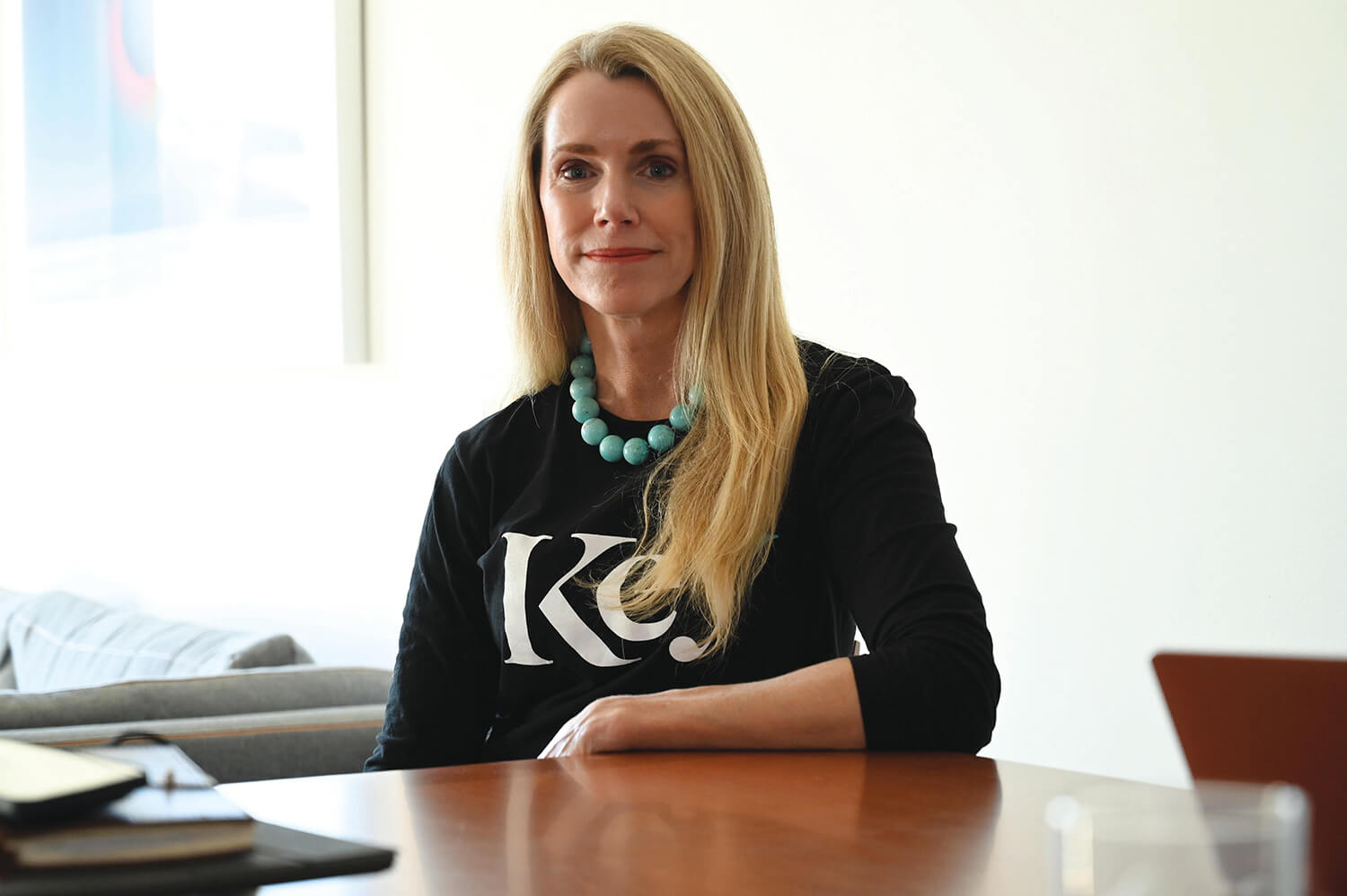The latest candidate in our series of Q&As with influential women in the technology business in Canada is Alison Simpson, Chief Marketing Officer, Key, a Toronto-based real estate technology company that has developed an all-digital, on-demand homeownership platform to address the housing accessibility problem.
Name: Alison Simpson
Job Title: Chief Marketing Officer, Key
Years in the Industry: 20+ Years
The Quote That Most Inspires You: “I’ve found that luck is quite predictable. If you want more luck, take more chances.” – (Brian Tracy)
Taking leaps – even when they felt terrifying – has led to my most fulfilling career and life accomplishments. Whether it was being the first woman president of an agency, leaving the perceived safety of the corporate world, or racing 250km across the Sahara Desert and running 60 marathons around the world, I’ve never regretted the leaps I’ve taken.
What drew you to a career in the consumer and/or business technology industry?
A belief that creativity can power commercial results and a love of innovating in ways that improve consumers lives while benefiting business’ bottom lines drew me into this career. Being a part of Key’s journey in making homeownership accessible to Canadians has led to a highly rewarding, challenging, and exciting career so far.
Throughout my career, I’ve held a number of executive marketing roles across the telco, retail, finance, and tech industries, and have been the president of several marketing agencies. I’ve had the pleasure of helping brands like Apple, Tim Hortons, Holt Renfrew, IBM, Rogers, and TMX Group, to name a few.
Since joining real-estate technology company, Key, I’ve been driven by our mission that is helping the millions of people who are locked out of owning a home. We are disrupting a traditional industry that is in need of innovation and we’re building a global brand along the way.
Have you encountered any roadblocks along the way that were related to your gender?
I’ve had a number of “female firsts” in my career, which are incredibly rewarding but also challenging. When you are the first female at the table, you quickly discover there are distinctly male approaches, biases, and traditions that make it tough to operate on an equal footing.
There were times earlier in my career where I had to advocate for myself in order to receive titles that were representative of the role I was doing, the ones my male colleagues already had. During these times, allyship played an important role, and I am fortunate to have had the support of male leaders and mentors who advocated on behalf of myself and other females. This was an important leadership lesson. I learned early on that we need all leaders to champion the development and success of women in the tech industry.

What unique characteristics or perspective do you feel you bring to your organization as a woman?
Having worked with organizations across a variety of industries has given me the unique ability to assess business potential, marketplace, and consumers’ needs to drive powerful results quickly. I’ve found women to be natural problem solvers and leaders. I’ve been able to take my experience leading teams and ability to manage chaos to a startup environment tackling one of the most pressing economic problems.
Technology is historically a male-dominated industry, yet the use of tech is fully embraced by women, and many studies even suggest that females are the primary buyers of tech in the home. What do you feel the technology industry needs to attract more women, particularly into high-level positions?
It is well known that the technology industry is dominated by men, especially at the leadership level. A culture of true inclusivity in the technology industry is possible, but there needs to be a genuine awareness of the need for change, along with the will and commitment to help drive change from both men and women in the industry.
More open minds, and a willingness to be uncomfortable, includes challenging biases and appreciating that there are very talented female candidates across all levels of the industry – beyond the traditional default areas of HR and marketing. Diversity takes consistency and dedication. There are countless benefits to having women in leadership, but women will not achieve equality without the support of men and those who are in positions of power. I’m fortunate to work at an organization that advocates and champions for the success of women in leadership positions.
If you had to sum up what it is like being a woman in this male-dominated technology industry in just a few words, what would you say?
Always exhilarating and, at times, exhausting.
Are there other women in the tech industry who inspire you?
Joanna Griffith, Founder and CEO of Knix. She is unwilling to accept stereotypes or be limited by others’ perceived limitations on what women can achieve. She turns taboos like age and pregnancy into competitive advantages.
What are some of the misconceptions/myths about women working in the technology space that you’d like to dispel?
That we are less well-suited to leadership than men; that we aspire less often to leadership positions than our male colleagues; that the business won’t be as strong with an equal balance of women and men around the executive table. The proven reality is that business is more successful with women around the executive table.
To drive stronger business results through greater innovation, we should be creating safer spaces that are inclusive of women and open to collaboration.
What’s one thing you wish was done differently in the industry, and why?
From junior level to leadership positions, we need to uplift and spotlight the success of women who help move this industry forward. It took me a while to find my voice and realize that I didn’t need to limit myself based on other’s misperceptions of what I can accomplish. I want to prevent other women from having this same experience. So, it’s time for the industry to level up and recognize that women taking on leadership roles and growth opportunities will create a much better future for everyone.
Are you optimistic for the future in general and for the industry?
Absolutely. I’m inspired daily by my colleagues and peers in the industry. There’s such a thirst for driving positive change and refusal to settle when we hit the inevitable roadblocks along the way.
I’m motivated by the potential that technology provides to improve the lives of people, reinvent staid industries, and drive societal change. I’m passionate about Key because it’s an amazing opportunity to help three-million renters become homeowners by 2030.
Hearing the gratitude and renewed hope from the individuals and families Key has helped become first time homeowners is incredibly rewarding. The tremendous response – and standing waitlist – of aspiring homeowners interested in Key feeds my optimism and will keep me plenty busy for years to come.
That passion combined with the strong need for what we’re doing feeds my desire to move fast and succeed quickly. We’re also innovating in an industry that’s had it good for a very long time and has become a bit complacent. So, opening minds to innovation requires heavy lifting. We have strong momentum as a business, but growth will never happen as fast as I want it to, which can be exhausting at times but it’s absolutely worth the massive effort.









